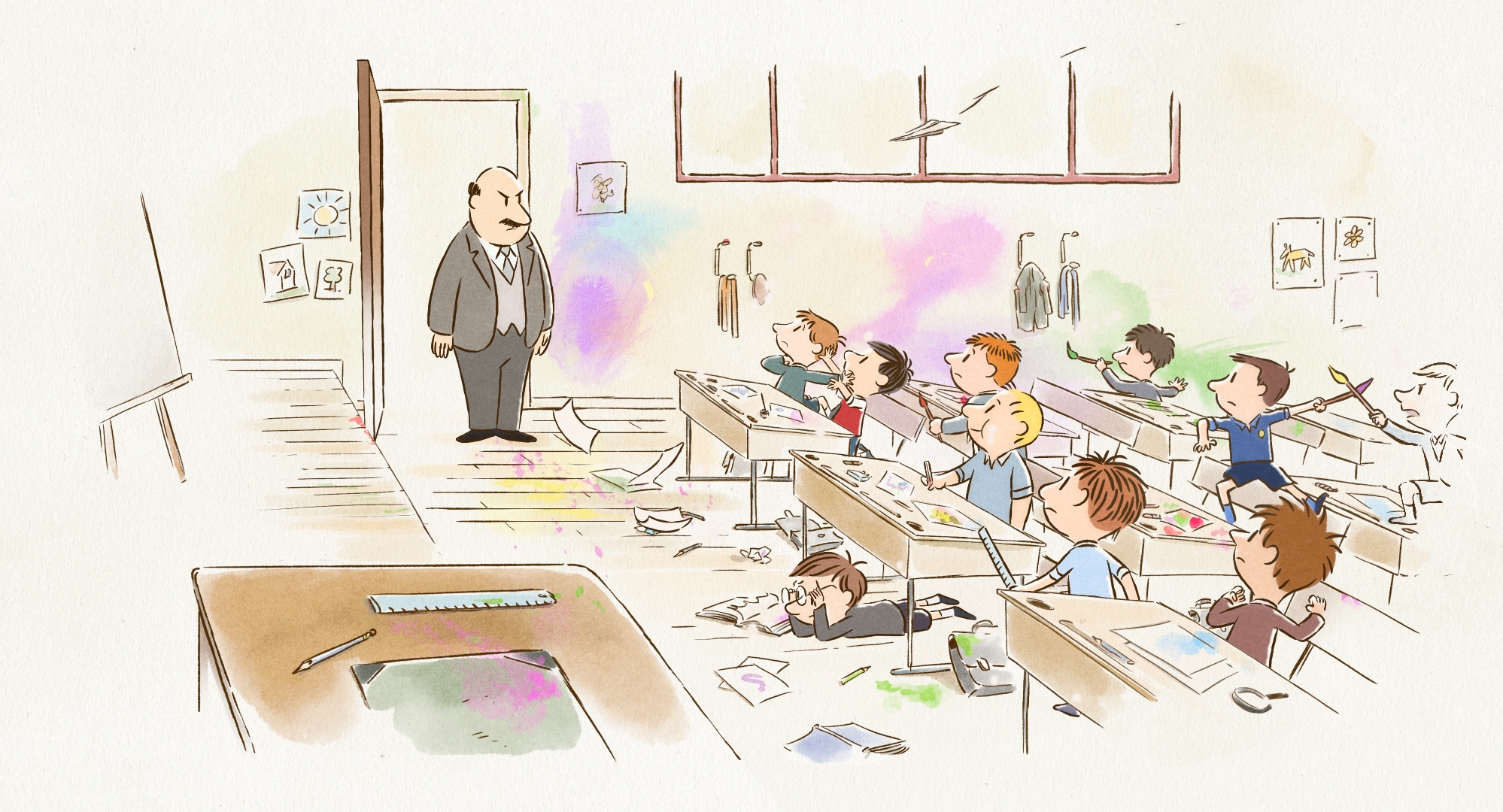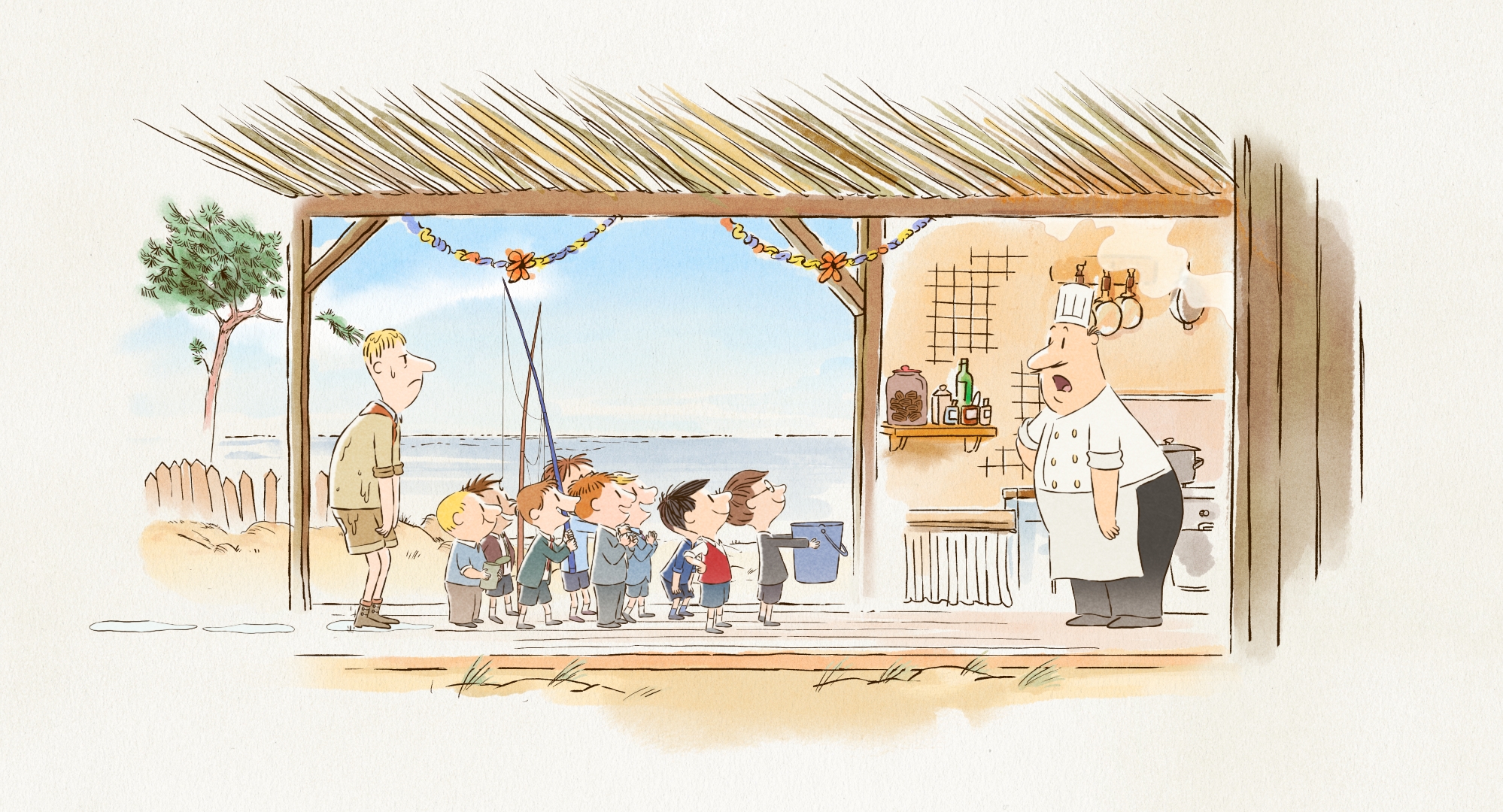Closing Film
|
Little Nicholas: Happy As Can Be Director: Amandine Fredon Benjamin Massoubre
The closing film of this session is "Little Nicholas: Happy As Can Be", which was exciting and interesting, attracting a large audience both on and off campus. Before the screening, the director from France surprised the audience through video, expressing honor for this animation as the closing film of this session, and briefly stating the meaning that the film intended to convey. Set in 1950s Paris, "Little Nicholas: Happy As Can Be" begins from the perspective of the illustrator Sempé. Sempé collaborated with the writer René Goscinny to create the serialized comic "Little Nicholas". During the process of discussing the story settings, the young boy Nicholas jumps from the comic into the real world, interacting and sharing life with his two creators. The film seamlessly interweaves between the time and space where Nicholas exists, and the real lives of the writer and illustrator, presenting a fresh and interesting narrative approach.
The film retains the strong illustrative style of the original work, often showing accelerated drawing processes. It also skillfully combines the characteristics of animation, such as when characters are outdoors, their colors turn into a draft-like black and white. The characters in the film have distinct personalities, like Nicholas's doting grandmother, the playful and clever girl Louise, and the teacher who can't handle the mischievous children but refrains from being too harsh. Combined with lively body movements, the characters come to life on paper. Along with Nicholas's whimsical life events, the audience in the theater recalls the beautiful moments of childhood, creating a continuous atmosphere of joy and delight. Nicholas's world is always happy, unlike real life. The two creators experience different lives through writing and illustrating Nicholas's story, filling in the gaps. As the film reaches its climax and experiences the departure of important characters, Nicholas curiously asks Sempé, "Will I die too?" "No", he answers, people will age, they will die, "but you are eternal", This seems to be one of the core messages the film intends to convey—life will fade, but the work will endure. The film mentions, "As long as you pay attention, there is humor everywhere". Real life is full of pleasant things waiting for us to explore and experience. Goscinny's humorous story, combined with Sempé's refreshing illustrations, sets a joyful and heartwarming ending for this session of the KDIAF.
|
|||



